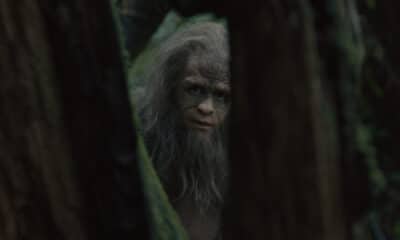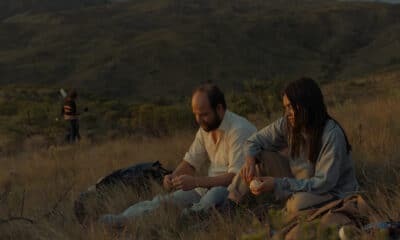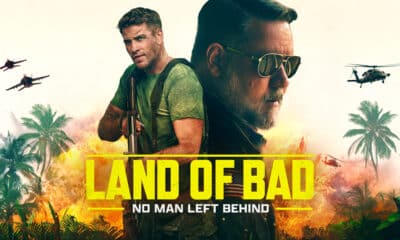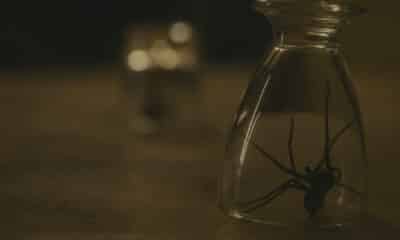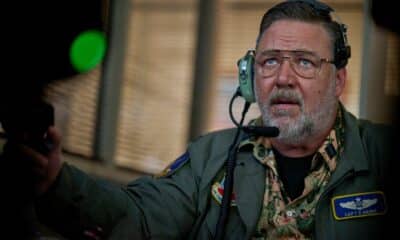
Jonathon Mostow may not be a name immediately recognisable to the average moviegoer. But the Hollywood director has been building an impressive portfolio over the past two decades. After breaking into the industry with the critically acclaimed Breakdown, starring none other than Kurt Russell, he went on to work with some of the biggest stars in the industry.
Mostow successfully steered the Terminator ship after James Cameron left the franchise, and also told a visually impressive story of technological enhancement starring Bruce Willis. Now his latest release, The Hunters Prayer, revolves around a contract killer who decides to protect the very woman he is hired to murder. The film stars Sam Worthington (Avatar) in the lead, and also boasts a talented supporting cast consisting of Odeya Rush (Goosebumps), Allen Leech (Downton Abbey), and Amy Landecker (Transparent).
Check out our exclusive interview with Mostow below:
THN: After such a successful career, can you tell us how you began as a Hollywood director?
Mostow: Well, I was always fascinated with film. I never knew exactly what I wanted to do in the industry, but I knew I wanted to work in it. When I turned 16 I went down to my local theatre and got a job as an usher, which is where it started. When I was in college, I was fortunate enough to be selected for a program where I was allowed to experiment with cameras. That’s where I really got the bug.
I moved to LA afterwards, and that’s where it really became a game of ‘how much of a good used car salesman are you?’. You have to then convince investors to part with their money, and make a product that they wont be able to see until after the film is made. It took a few years before I really got the hang of it, and then I got my first movie. After that, things just took off from there.
THN: How do you feel looking back over your career so far? And do you have any regrets?
Mostow: The only regret I have is not having made more films. My process in developing films has not been as efficient as I would have liked, but I’m going to try and fix that going forward.
THN: After working with huge A-list stars like Kurt Russell, Bill Paxton, Arnold Schwarzenegger, and Matthew McConaughey, which actors are you still hoping to work with?
Mostow: In terms of actors I hope to work with, there are just so many! I’ve been incredibly fortunate because my films always manage to have a big star. But, I think that is probably a reflection of the fact that I came of age in the 1970’s. That was an era of film making where Hollywood movies were typically dominated by a big male movie star. They would normally star people like Clint Eastwood, Robert Redford, or Paul Newman. That then became synonymous with what being a movie star meant.
These stars gave me an escapist fantasy as a kid, because you project yourself as their characters. When I became a Hollywood director these ideas stuck in my head, and I think that may explain why my movies all star a big male lead. That’s why they all have a classic, good looking, charismatic, movie star.

THN: Your latest film, The Hunters Prayer, continues this trend with Sam Worthington (Avatar, Terminator: Salvation). How involved were you in the casting process?
Mostow: Sam was actually already attached to this film through his production company. It’s originally based on a book called For the Dogs, and they had been trying to adapt it for a while. They then approached me after a few iterations of the script had already been written.
I really liked Sam. I always had a hunch that he would be a very serious actor, and I found out that I was right. He’s also a very highly trained actor, after working with the National Institute of Dramatic Art in Australia. Everyone thinks he just appeared in the world because of Avatar, but before that he had actually made quite a few movies in Australia. It just took him a bit longer to be discovered by Hollywood. So, I thought it would be really interesting to work with an actor who had the background that Sam does.
THN: How much input did you have on the script for The Hunters Prayer?
Mostow: Well, there was already a script in place. Somebody had been trying to put it together for a while. Believe it or not, the original script was actually a lot darker than the one we ended up with! I read it and I thought ‘this is too dark’, which lead me to make a few changes.

THN: Your leading roles typically centre on morally ambiguous characters. What is it that attracts you to these types of characters?
Mostow: That’s interesting. In the case of Terminator 3, I don’t know if that applies. The leading character is a robot, and a robot obviously has no moral code. What’s interesting about the Terminator, and I’ve thought a lot about this, is that it’s such a popular character. I always wonder what it was that captured the interest of so many people across the world. This is a character that doesn’t obey any sort of moral code, or laws, but his actions are ultimately heroic in some way. I think that having a character who is not constrained by morals, helps the audience lose themselves in the fantasy.
In Surrogates, the core theme revolved around the fact that in society we are becoming increasingly distant from one another. The main character has gone down a long path, and in many ways he hates himself. In a very exostential way he is fighting back against life itself, and the people who he believes have gotten him to where he is.
It’s interesting actually, because you don’t really think about these things until after you’re asked. Then it makes you go back over your past work and maybe see some connective tissue you didn’t even realise was there. I’m not even sure if I 100% agree with you that I pick morally ambiguous leads, but it’s really interesting anyway.
THN: The Terminator franchise has received a lot of attention lately after the 3D re-release of Judgement Day. What are your thoughts on the series as a whole? And how do you feel looking back on Rise of the Machines?
Mostow: Well, the first two Terminator films were revolutionary. So, stepping into the third one after James Cameron was a big step up for me. Up until that point I had made a few films that received different levels of critical acclaim, but I had never done a big hit. When they first approached me about the film, the series was beginning to turn into a big franchise in the industry. At that point you could already see the writing on the wall, that Hollywood was about to become dominated by huge tent pole franchises. I was very interested in what that experience would be like.
I was initially pretty sceptical about why we actually needed a Terminator 3, because Terminator 2 was so good! From a business sense, the audience was obviously there. But, as a film maker I became more interested in telling a story that I knew the whole world would see. On my previous films I was always wondering ‘is anybody actually gonna see this?’, but I knew that Terminator 3 would be a giant, worldwide release. So overall, it was a very pleasurable experience. Arnold is an absolutely fabulous guy to work with, and it was an honour. I can’t say that today, that sort of film wouldn’t interest me again if I was approached.

THN: Terminator 3: Rise of the Machines is well known for its deleted ‘Sergeant Candy’ scene, featuring an explanation for why the T-800 models are all based on Arnold Schwarzenegger. Can you explain why this sequence was removed from the final cut of the film?
Mostow: With that film we already knew we were facing a tremendous audience. My biggest concern was that we would let them down, after trying to fill the big shoes of James Cameron. I wanted the audience to accept us, and not think of us as a shameless effort to try and take their money. So, I made a conscious decision to use comedy as a method of disarming the audience. I thought that if I could make them laugh, they would unfold their arms a little bit.
But, with the Sergeant Candy scene we thought that was a bit of a step too far. There was too much comedy in that scene, and it was funny, but ultimately too much. That’s why I decided to take the sequence out. In retrospect, the humorous side of the film was one of the biggest criticism’s from the core fanbase. I think they would have preferred a more serious film.
The Hunters Prayer is out now on digital platforms and DVD.

Latest Posts
-


Apple TV
/ 22 hours agoTrailer: André Holland leads Apple’s new limited series, ‘The Big Cigar’
Apple TV+ has released the full trailer for The Big Cigar, a new, six-episode...
By Paul Heath -


Film News
/ 23 hours agoUK trailer, poster and release date for Sundance smash ‘Sasquatch Sunset’
Premiering in the UK at the Sundance London event in June is the brilliant...
By Paul Heath -


Disney+
/ 1 day agoNew trailer for ‘Becoming Karl Lagerfeld’ with Daniel Brühl
A trailer has landed for the June-released Becoming Karl Lagerfeld, the Disney+/ Hulu series...
By Paul Heath -


Film News
/ 1 day agoUK release date revealed for Cannes film ‘The Delinquents’
MUBI has announced the release date for The Delinquents, the Cannes Un Certain Regard-premiering...
By Paul Heath


